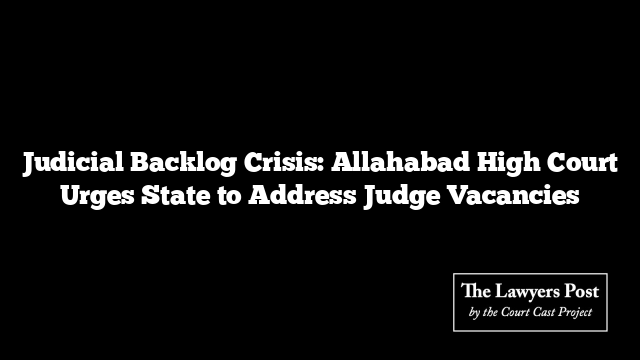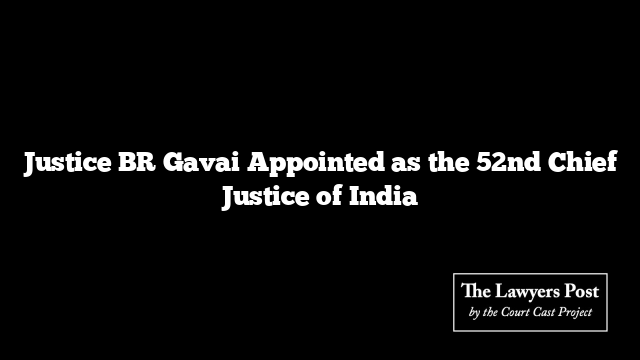The Allahabad High Court has taken a significant step in addressing the mounting judicial vacancies within its ranks, as it issued a notice on Tuesday seeking the State’s response to a Public Interest Litigation (PIL) demanding urgent action to fill these gaps.
A bench comprising Justices MC Tripathi and Arun Kumar-X directed both the High Court administration and the State government to provide instructions on the matter, setting a hearing date for May 21.
The PIL, highlighting the severe shortage of judges, revealed a staggering ratio of one judge for every 30 lakh people, with each judge handling an average of 14,623 pending cases. The court currently faces an overwhelming backlog of 11.55 lakh cases, a situation exacerbated by 81 vacant judicial positions out of a sanctioned 160.
According to the petition, the lack of adequate judicial representation violates citizens’ constitutional rights to timely and efficient justice under Articles 14 and 21 of the Indian Constitution. Even if all 160 positions were filled, the court would still struggle with a judge-to-population ratio of one judge for every 15 lakh people.
The petition further outlined the gravity of the crisis, emphasizing that over half of the sanctioned judicial positions remain unfilled, compromising the court’s ability to function effectively. With 79 judges currently in place, the High Court is operating at less than 50% of its sanctioned strength, leaving critical vacancies that hinder the administration of justice.
The petitioners argued that failure to fill these vacancies promptly would not only disrupt the judicial process but also erode public confidence in the judiciary’s ability to deliver fair and timely justice. They called for a transparent and expedited approach to restore the court’s full capacity, ensuring that citizens’ access to justice is not further compromised.
This plea comes amidst rising concern about the court’s ability to manage its caseload. In January, the Allahabad High Court was already grappling with over 11 lakh pending cases, and the Supreme Court recently echoed similar concerns regarding the backlog and the urgent need for judicial appointments.





